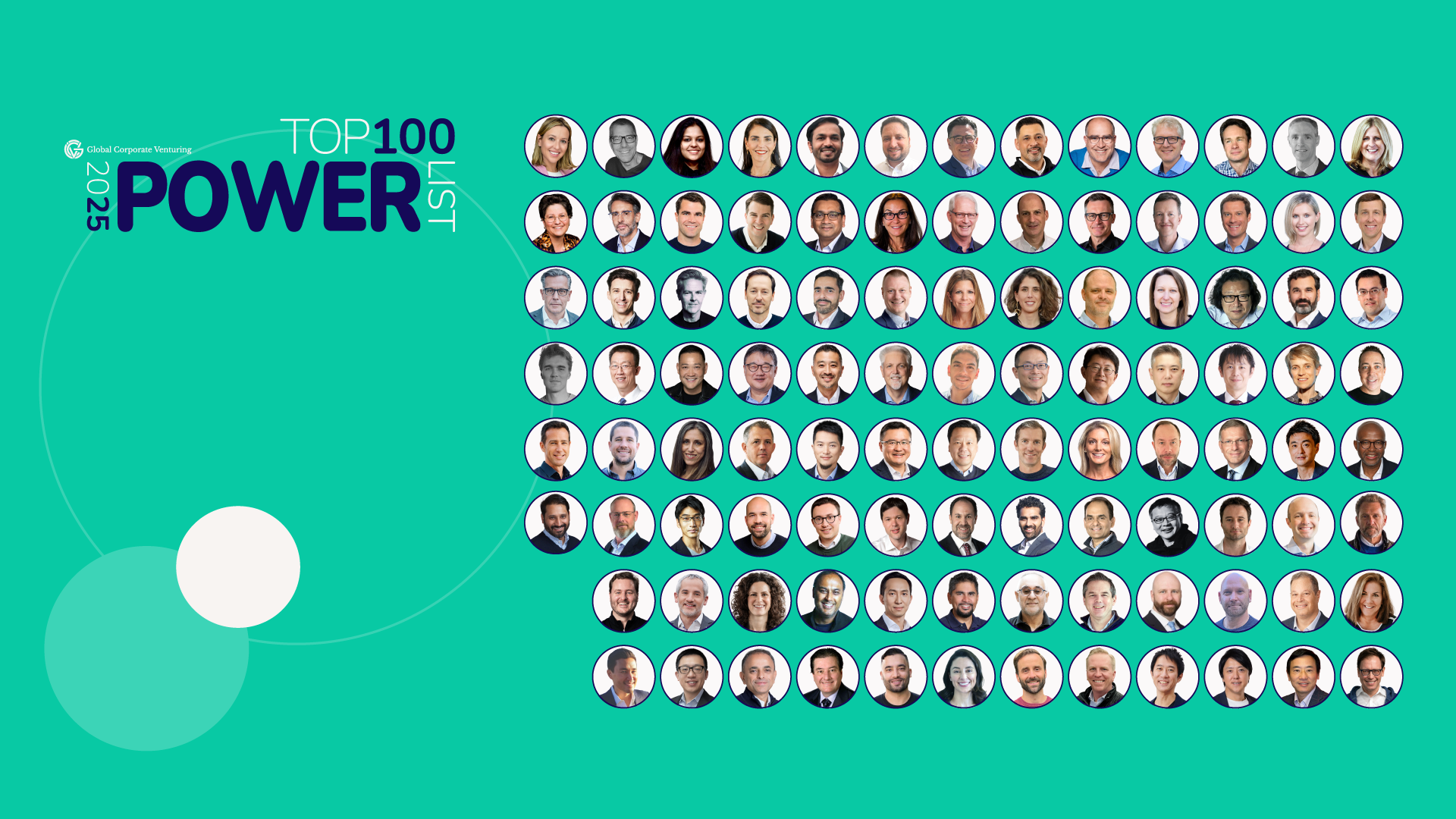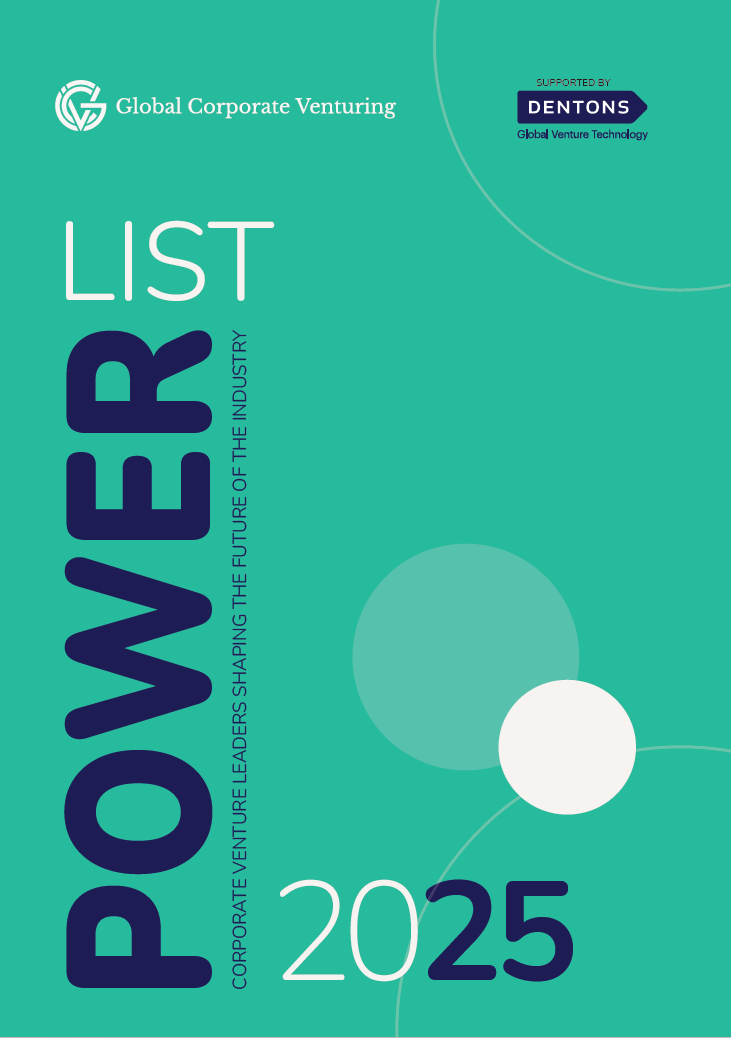Asian corporate investors have become more prominent in the ecosystem and many CVC units are trying alternative models.

Some 36 new names this year joined the GCV Powerlist — our annual award for the 100 most influential people in corporate venture capital — reflecting the profound changes we are seeing in the industry.
While hundreds of corporations have set up operations to invest in startups over the past decade, over the past few years economic uncertainty and a slowdown in the startup market has made them re-evaluate what they want from these units. Rather than investing in startups simply out of fear of missing out, many are taking a more calculated look at which startups and technologies can really bring strategic benefits to the business. There is much more emphasis on working with startups after investment.
As a result, we’ve seen some changing of the guard at CVC units. One of our new Powerlisters, Elizabeth Gunner Schermer, took over last year as head of Maersk Growth, the investment arm of Danish shipping company AP Moeller Maersk. The team had already pivoted to a model where they run a venture clienting operation where they can partner quickly with startups without investing in tandem with a longer-horizon investment strategy. Gunner Schermer, a 18-year veteran who has worked across multiple divisions of Maersk, is instrumental in opening doors internally for the investment arm, smoothing the process of getting the startups embedded with the company.
Some of the new Powerlist awardees also represent new models of CVC engagement. Lars Roessler, who founded BSH Startup Kitchen, had worked in relatively typical corporate venture teams previously, but seven years ago when he set up the unit for the German home appliances maker, he made it a venture clienting operation, to partner, rather than invest in, startups. Roessler had felt the CVC model was “broken” when it came to achieving immediate impact. BSH Startup Kitchen, meanwhile, ran more than 130 projects for BSH, around 20% of which went on to build a bigger commercial relationship with the company.
Piyush Puri, one of the founding partners of Mercurius Media Capital, is also testing out a different CVC model. Independent media-for-equity fund MMC was created in response to a gap identified by Puri and the team at Brand Capital International – the strategic investment arm of the Times Group – in the largely untapped media-for-equity investment landscape. Giving consumer-focused startups media exposure rather than cash has worked well for the Times Group in India and now Mercurius is pushing the idea into the US market.
Asian CVC market grows
We’ve also seen a large number of Asian corporate investors added to the list, including Shintaro Yamakami, of Colopl Next, the investment arm of Japanese game developer Colopl; Kosuke Mori, managing partner of Saison Capital, the corporate investment arm of Japanese financial services company Credit Saison; In Joon Hwang, CEO of Z Venture Capital, the CVC arm of Japanese internet company LY Corporation; Seung-wook Kim, CEO of Lotte Ventures, the investment arm of South Korea-based confectionary-to-hotels corporation Lotte; and Raymond Zheng, senior managing director at Honda Xcelerator Ventures, the venture arm of the Japanese carmaker.
A large number of Japanese companies have taken up venture investment over the past decade, partly in response to the Japanese government’s push to grow the country’s startup sector. Some of the Japanese names joining the Powerlist this year aren’t new to corporate investing per se — Colopl Next, for example, has been in existence for a decade — but these units have grown from small experiments 10 years ago to now sizeable and experienced teams that undertake impressive numbers of investments each year. Colopl Next has racked up more than 250 investments to date, the majority outside Japan, and is starting to see this track record pay off with sizeable exits, such as the $450m acquisition of its portfolio company Landvault, an in-game advertising monetisation startup.
Honda, meanwhile, added investment to its pre-existing accelerator operations three years ago, and after spending the first two years in learning mode has taken a sizeable step forward in pace and volume of investment this year.
Similarly, South Korea’s Lotte Ventures, which started as an accelerator in 2016, has recently been ramping up its investments in overseas markets such as Japan, Vietnam and the US, opening an office in Silicon Valley in 2023.
But CVC also has longevity
While more than a third of the Powerlist is new this year, it is also worth noting that there are 26 awardees who have been on the Powerlist for five or more times. This group includes names such as Stefan Gabriel, who founded Hitachi Ventures in 2018 and has since raised a succession of new funds, to the point where his team now has more than $1bn under management. Jacqueline LeSage, founder and managing general partner of Munich Re Ventures, is another example of a CVC leader with longevity, having steered her team for more than a decade. Munich Re is now starting to reap the rewards of LeSage’s early bets by, for example, acquiring Next Insurance, whose series A round the ventures team led in 2017. Bill Taranto, meanwhile, has seen MSD GHI, the venture unit he set up for US pharmaceuticals company MSD, pass its 15th year.
Nicolas Sauvage, president of TDK Ventures, is another 5-time Powerlist awardee who looks set to catch up with these records before long, having set up the CVC operation in a textbook way for endurance. There are lessons that can be learned by looking at the Powerlist perennials. CVC units set up with their own funds, maybe even an evergreen structure (see for example Crispin Leick at EnBW New Ventures), and which set up a portfolio development team that brings the startups in the portfolio together with the parent company, tend to be able to weather market changes and corporate leadership shifts best. It also helps that many of these CVC leaders are born diplomats, with a rare ability to speak both the language of startups and C-suite stakeholders.
The GCV Powerlist is intended to be more than just an annual awards list — it is a guide to best practice. By showcasing the models and methodologies these 100 successful investors have chosen, we’re hoping to help new entrants and continue to improve outcomes for the CVC sector as a whole.

Maija Palmer
Maija Palmer is editor of Global Venturing and puts together the weekly email newsletter (sign up here for free).










